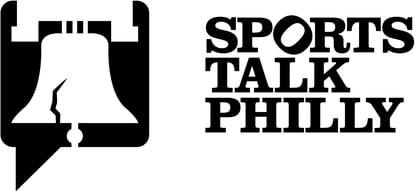The NHL's not necessarily a league known for constant change and innovation — sure, rules will change every now and then — and it's also not exactly known for giving the fans what they want. Yet in this weekend's All-Star Game, they managed to cover all of those bases.
As the league adopted a 3-on-3 format for overtime games this season, fans have responded positively. Not only has the extra space given players more ice surface to work with, more games are being settled in overtime rather than the glorified coin-flip known as the shootout. So far this season, 171 games have gone to overtime, 109 of which have been settled within five minutes (or 63.7 percent). For context, only 136 of 306 games last season — 44.4 percent — ended in overtime.
Obviously, 3-on-3 is working so far (despite the limited sample size), and the NHL decided to apply that to this year's All-Star festivities. Rather than one big game featuring Captain vs. Captain, East vs. West or North America vs. World, this year's format was three smaller 3-on-3 tournament games that pitted all four divisions against each other. It seemed like this year's All-Star Weekend was going to go swimmingly, but the NHL was tossed a curveball that was tough to predict — even by fan-voting standards.
When the 3-on-3 format was announced in November, Greg Wyshynski of Yahoo's Puck Daddy fame went on record as to say that then-Arizona Coyote John Scott would be perfect for the new format — after all, what would be funnier than watching a 6-foot-8 goon with five career goals try to hold his own with the rest of the league's elite? Seeing as the All-Star Game's voting was left up to the fans, the #VoteForScott campaign took off.
Ultimately, Scott earned the most votes out of anyone in the Fan Vote, and thus was named as Team Pacific's captain on Jan. 2. The Internet won, much to the NHL's chagrin.
Just two weeks later, the Coyotes dealt Scott to Montreal, who then proceeded to demote him to the American League's St. John's IceCaps. While the trade was cited as a business move by Coyotes GM Don Maloney, it was alleged that the trade surfaced from Scott's refusal to not participate in the game, as requested by the Coyotes and the NHL.
John Scott was previously asked by both NHL and Arizona Coyotes to bow out of NHL All-Star Game. He refused. Trade likely takes care of that
— Bob McKenzie (@TSNBobMcKenzie) January 15, 2016
The Internet had won the battle in voting Scott to the All-Star Game, but the NHL had won the war. And in a damning post for The Players' Tribune from last week, Scott outlined the hell that NHL officials had put him through. Ultimately, the NHL had allowed him to take part in the All-Star Game, despite not even playing at the NHL level.
When the time came to take the ice for Sunday's game, Scott remained the top story. He had received rousing ovations from fans, and when he took the ice for Team Pacific's first game, he responded with two goals — or 40 percent of his entire career total — in their 9-6 win over Team Central.
He was also named the tournament's MVP, as decided by — yep, you guessed it — a fan vote, and received a Honda Pilot for his troubles. It was a fitting ending for fans of sympathetic and unsung figures getting their due.
Aside from the Scott fiasco, the actual All-Star Game was nothing short of fun to watch. It featured a high-scoring game that All-Star Games have been known for, while goaltenders also got their chance to shine in the tournament's championship round. It was fun to watch despite the Flyers sending just one delegate, Claude Giroux.
Giroux did not amount to much in the lone game he played — recording two shots on goal in 7:52 of ice time — but considering what he's done in 3-on-3s for the Orange and Black this season, there's no need to complain.
Perhaps Shayne Gostisbehere could join Team Metropolitan for next year's game in Los Angeles. Surely, their chances of winning would surge significantly.
Sure, there are plenty of things the league can do to improve the All-Star Game. Though it will never happen, I'd personally like to see a return to the old days, where the Stanley Cup champions would face a team of All-Stars from across the league. At the end of the day, instituting the 3-on-3 tournament format is something that should be revisited for future All-Star Games.
The NHL had done something it doesn't do too often, and gave fans something they'd like when they instituted a 3-on-3 format for this year's All-Star Game. They nearly fumbled that with their handling of the John Scott situation, but did the right thing by letting him play. Ultimately, the result was a memorable night in Nashville, and something for fans to look forward to in the future.
Rob Riches is a contributor to Flyerdelphia and Sports Talk Philly. Follow him on Twitter @Riches61

